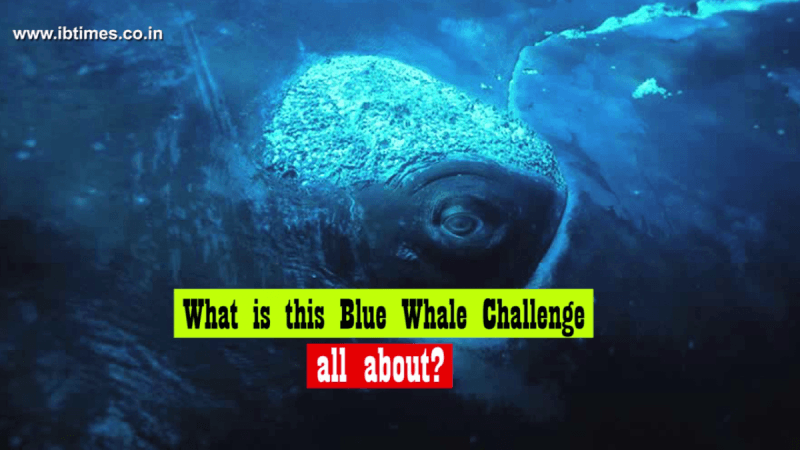The banned Blue Whale Challenge online game has returned to spotlight, albeit in the form of various similar games such as 'A Silent House', 'A Sea of Whales', and 'Wake Me up at 4:20AM'. The government of India has taken stringent steps to ban this deadly game while cyber police and child psychologists have urged for better initiatives to monitor and control the content being posted on various social media sites including Facebook, Instagram and WhatsApp to prevent any unexpected disasters linked to the Blue Whale Challenge.

Similar to the Blue Whale tattoo, there have been reports of teens inscribing the word 'F57' on their bodies as part of the game titled 'A Sea of Whales'. 'F58' is another suicide game that mirrors the challenges of the Blue Whale game.
According to the New Indian Express, the Ministry of Electronics and IT (Meity) in its recent letter dated August 11 directed the Internet Service Providers (ISP) to remove any links to the deadly online game and thereby prevent unsuspecting teenagers from falling prey to these life-threatening games.
In our earlier report, we have seen why Blue Whale Challenge is not just a game, but a death trap. To be precise, it is a suicide game which tricks the players to complete all the challenges in the run up to the 50th or final day of the challenge when the victim is instigated to kill himself. The player may also be asked to share his photos after each challenge leading up to his death.
"The Cert-In should proactively track such games and make a list that should be made available to internet and social media to block it," says Sahil Bagla, a cyber security expert.
"It is understood that an administrator of the game uses social media platform to invite /incite children to play this game, which may eventually lead them to take extreme steps for self inflicting injuries including suicide," he explains.
After the recent death of 14-year-old boy in Mumbai, the government of India is taking all the necessary steps to curb this menace by preventing children from participating in such online games.
"Information Technology Act of India has enough powers to make the intermediaries like Google and Facebook to prevent from allowing such links to be hosted on their website.it requires political will, that is critical," explains Pawan Duggal, a cyber law expert.
"More parental observation, especially with kids indulging in online games is critical," says Ajay Sharma, a child psychologist.





![Ultrahuman launches Ring PRO, free charging case with more than just power and Jade AI [details]](https://data1.ibtimes.co.in/en/full/829151/ultrahuman-launches-ring-pro-free-charging-case-more-just-power-jade-ai-details.png?w=220&h=138)











